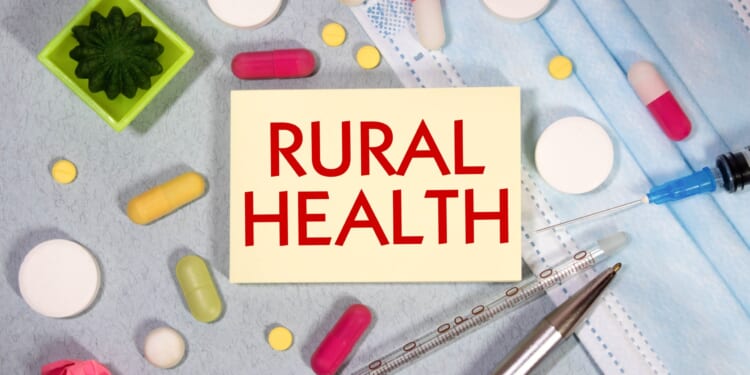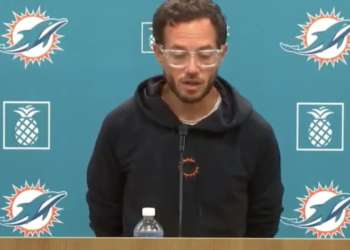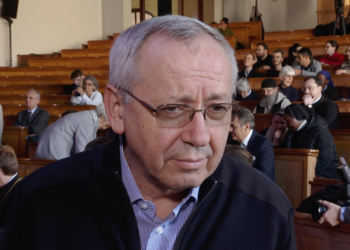As the Trump administration prepares to force its Most Favored Nation price controls on drug makers, a major U.S. lobbying group is pushing for a change to drug discounts law that would necessitate a taxpayer-funded bailout of rural hospitals to the tune of at least $100 billion.
Concerns about the need for a taxpayer-funded bailout of 340B, should it be dismantled or reformed more significantly, are not new.
That’s the conclusion to be drawn from a new report from the American Hospital Association, which found that the 340B Drug Pricing Program provided almost $100 billion in total benefits to 1,166 rural hospitals in 2022, a 47 percent increase from 2019.
The report underlines exactly how reliant on the program — which advocates have long touted as a zero-taxpayer dollar solution to rural health funding challenges — hospitals in red America really are.
It also puts a specific figure on the size of a taxpayer-funded bailout that would inevitably be sought, were the program to disappear — though advocates note the hit to taxpayers would be even higher than $100 billion if facilities other than purely rural hospitals suffered financially from the curtailment of 340B.
Roughly $46.3 billion of the total $100 billion identified in the AHA report was used to plug holes in multiple areas where government funding was lacking including unreimbursed Medicaid and other government program costs or for financial assistance. Another $17.5 billion was used to cover Medicare shortfalls. $1.5 billion went to covering bad debt, including where patients were unable to pay amounts legally owed for treatment.
That’s a big deal for rural hospitals.
Center for Healthcare Quality and Payment Reform officials voiced major concern about the financial viability of more than 700 rural hospitals, validating hospital arguments that in many rural areas, hospitals themselves are on life support. The report underlines how 340B program gives them a cash lifeline as they prepare for more expenses, particularly as inflation remains sticky across the country.
It also emerges against a backdrop of Medicaid reforms in the “One Big, Beautiful Bill” potentially having more of the effect sought by deficit hawks and less the effect sought by Republicans representing deep red, rural districts. 60 percent of 340B hospitals are in rural areas, and red states like Louisiana, Arkansas, Missouri, Kansas, and West Virginia have been out front in moving to protect the program via state legislation.
For years, the Pharmaceutical Research and Manufacturers of America (PhRMA) has lobbied for what it calls reforms to 340B, a 1990s era program requiring drugmakers to sell certain drugs to safety-net providers at discounted prices if they also want to sell those drugs to Medicaid and Medicare.
PhRMA has claimed tax-exempt hospitals and clinics abuse the program by artificially raising the price of medicines acquired at a discount and then sold to wealthier patients to boost revenues. They’ve called it a “hidden tax” on patients.
The group seemed to secure a victory when Health and Human Services Secretary Robert F. Kennedy Jr. announced a new Rebate Model Pilot Program this summer. The government called the 340B pilot program a “methodical and thoughtful approach” focused on transparency and fairness.
Hospitals say the scheme falls afoul of law governing the program. Traditionally, hospitals pay a discounted price for medications. But under the proposal, hospitals pay the higher price and receive a “post-purchase rebate” to make up the difference between what they paid and the 340B price. Rural hospitals, especially worry this will increase bureaucracy for which they lack staff and budget and could result in them never receiving rebates by leaving too much decision making authority with pharmaceutical companies who have no incentive to pay out full rebates.
Nonetheless, the Pilot Program is a relatively small tweak compared to the much greater changes to 340B sought by PhRMA, which hospitals say would amount to dismantling the program.
Concerns about the need for a taxpayer-funded bailout of 340B, should it be dismantled or reformed more significantly, are not new.
Last year, Joe Grogan, a former assistant to President Donald Trump, explained to the Association for Value-Based Cancer Care Annual Summit: “If you solve the 340B problems, there’s no question, some hospitals are going to be under pressure.”
Grogan is no fan of 340B, in fact, he said the program has gotten “so big and out of control.”
Grogan also previously worked for Gilead, a drugmaker that has been pegged as the most 340B-averse within the industry.
But even Grogan acknowledged the Catch-22 by saying the federal government didn’t “have the money to shore up the community hospitals and solve the 340B problem.”
This means if drugmakers have their way, the federal government likely ends up spending $100 billion of taxpayer funds to bail out rural hospitals, rather than see them shut down.
That will prove a hard pill for Republicans to swallow, whether they are those concerned about the existing size of the debt and deficit or those worried about Democratic attacks on Medicaid cuts sticking, even in dark red areas.
READ MORE from Taylor Millard:
Britain’s Online Safety Act Might Come to America
Mexico Escapes the Tariff: Happy Cinco de Mayo!
Happy Hour May No Longer Be So Happy
Taylor Millard is a writer in Alexandria, Virginia. His work has been featured in the Spectator, Washington Examiner, Inside Sources, and other publications.








![Florida Officer Shot Twice in the Face During Service Call; Suspect Killed [WATCH]](https://www.right2024.com/wp-content/uploads/2025/12/Inmate-Escapes-Atlanta-Hospital-After-Suicide-Attempt-Steals-SUV-Handgun-350x250.jpg)
![Keith Ellison Caught Promising to Fight State Agencies for Somali Fraudsters [WATCH]](https://www.right2024.com/wp-content/uploads/2026/01/Keith-Ellison-Caught-Promising-to-Fight-State-Agencies-for-Somali-350x250.jpg)







